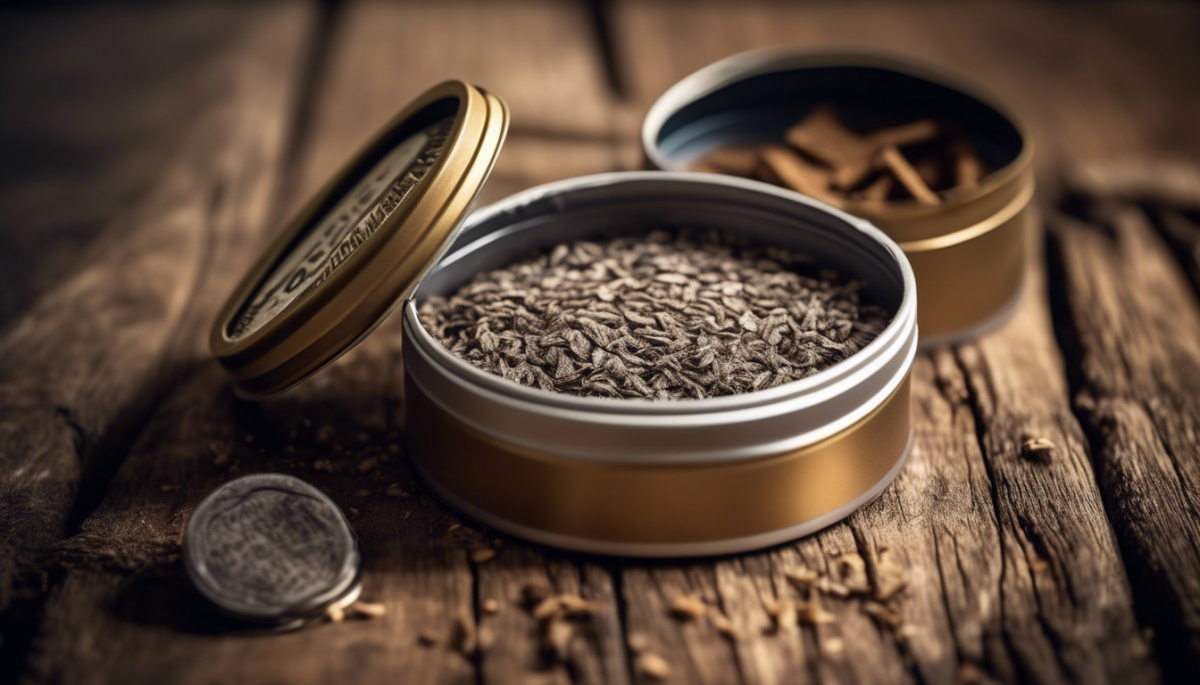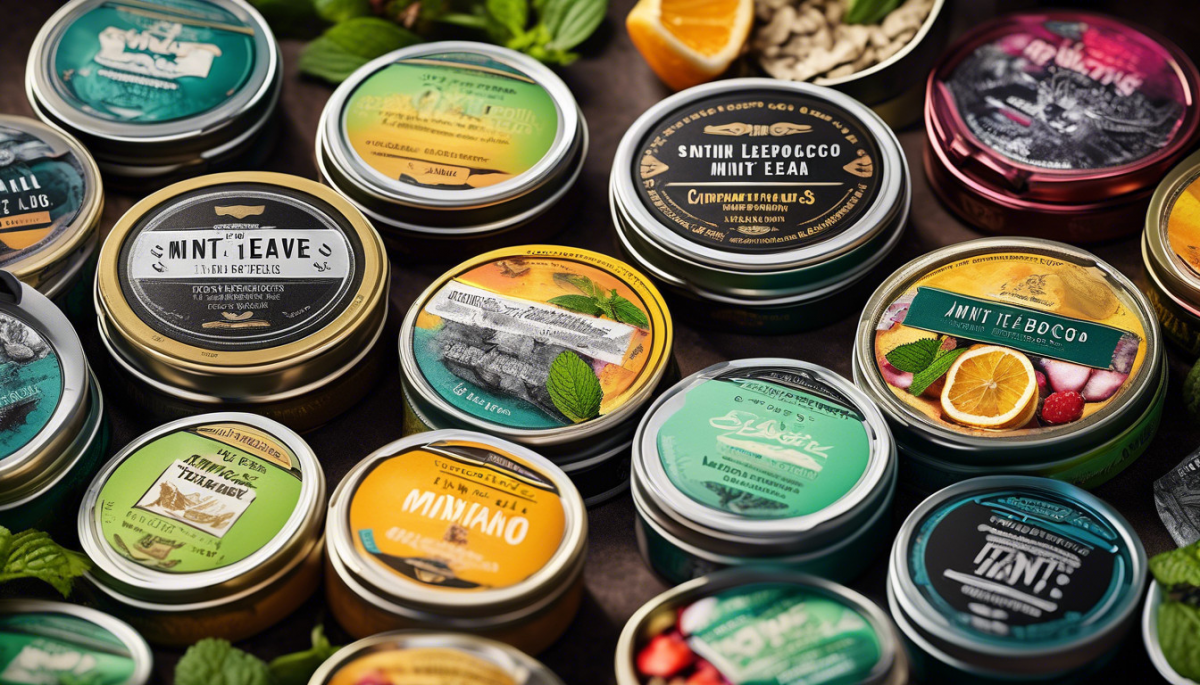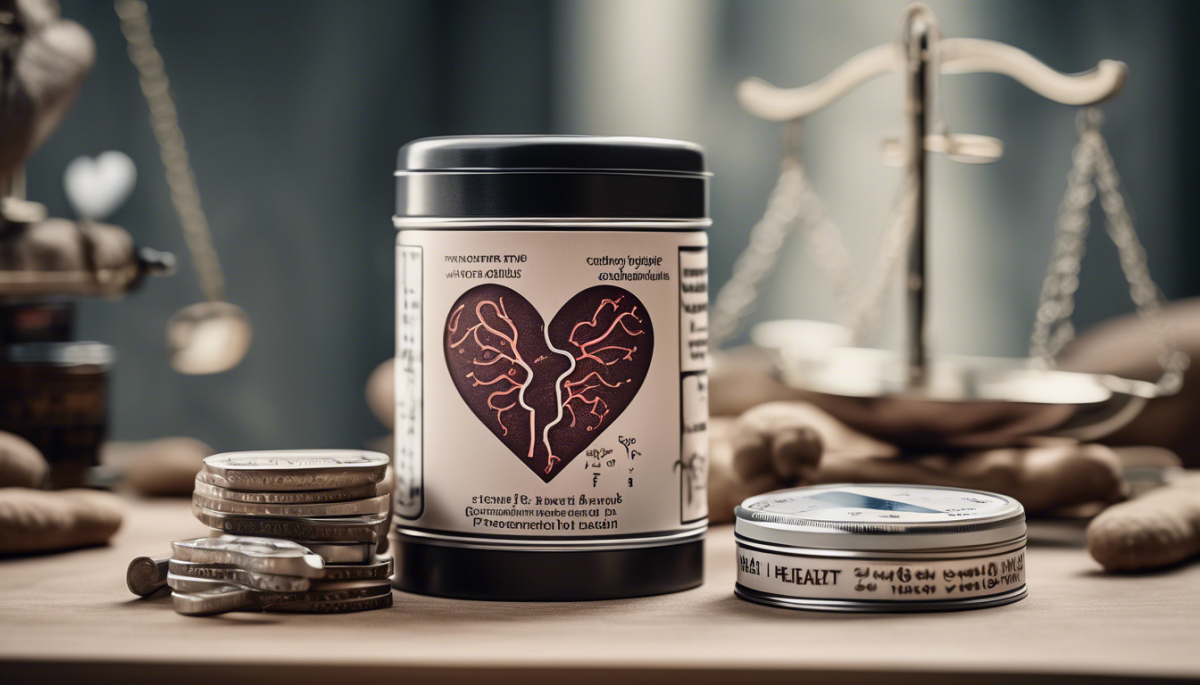For those who like Swedish snus
Swedish Snus: A Traditional Smokeless Tobacco Product
Swedish snus, a traditional smokeless tobacco product, has gained considerable attention in recent years due to its unique characteristics and cultural significance. Originating in Sweden, snus is distinguished by its moist, finely ground tobacco, typically placed under the upper lip, which offers a smokeless alternative to other tobacco products.

Global Popularity and Appeal
Its popularity has spread beyond Scandinavia, reaching enthusiasts and aficionados around the globe who appreciate its distinctive flavors and discreet usage. The product’s evolution has seen a diversification in flavors and formats, catering to a wide range of preferences and enhancing its appeal.
Regulatory Landscapes and Availability
- Regulatory landscapes vary significantly across different regions.
- These regulations influence the availability and consumption patterns of snus.
Exploring Swedish Snus
This article delves into the world of Swedish snus by exploring:
- Historical Roots
- Production Processes
- Health Implications
- Cultural Nuances
By examining these facets, a comprehensive understanding of Swedish snus emerges, highlighting its role in contemporary tobacco consumption.
For those seeking a stylish way to carry their snus, NicoBags offer a sleek and convenient solution.
Historical Significance
Swedish snus holds a rich historical significance, originating in the early 18th century as a ground tobacco product that became an integral part of Swedish culture and tradition. Its development marked a pivotal moment in Scandinavian society, where the use of tobacco was not merely a habit but an expression of cultural identity.
The arrival of snus coincided with shifts in tobacco consumption patterns and provided an alternative to smoking, particularly appealing due to its less conspicuous nature.
Traditionally, snus was produced through a meticulous process that involved:
- Curing
- Grinding
- Moistening tobacco
This method ensured a consistent delivery of nicotine, which played a central role in its widespread acceptance and use.
The product’s evolution over time reflected Sweden’s societal values, emphasizing quality and sustainability. This connection to tradition fostered a sense of community and belonging among users, who viewed snus as more than just a tobacco product. It represented a shared cultural heritage, contributing significantly to its enduring popularity.
Flavor Varieties
Snus offers an impressive array of flavor varieties, ranging from classic tobacco to innovative blends featuring mint, berry, and citrus notes. This diversity caters to a wide range of preferences, allowing consumers to find a flavor that resonates with their taste and lifestyle.
Classic and Modern Flavors:
- The classic tobacco flavor remains a staple, paying homage to the rich tradition and history of snus.
- Newer flavors provide a modern twist that appeals to contemporary palates.
Refreshing and Vibrant Options:
- The inclusion of mint, berry, and citrus flavors introduces refreshing and vibrant options.
- These flavors expand the sensory experience and enhance the enjoyment of snus.
Each flavor is crafted to deliver a distinctive balance, where the underlying essence of tobacco harmonizes with the added elements, creating a unique experience for users.
Nicotine Content:
The nicotine content in these varieties remains a key component, ensuring that the desired effects are consistently achieved.
This careful blending of tradition and innovation ensures that snus maintains its relevance in a constantly evolving market.

Health Considerations
Snus and Health Considerations
Many health considerations surround the use of snus, as its consumption impacts various aspects of well-being and raises discussions about its potential risks and benefits.
Alternative to Smoking
As a smokeless tobacco product, snus offers an alternative to smoking, which may appeal to those seeking to reduce exposure to harmful combusted substances. The tradition of using snus has deep roots in Swedish culture, emphasizing a sense of belonging among its consumers.
Nicotine Content
Snus contains nicotine, a substance known for its addictive properties, which can lead to dependency and possible withdrawal symptoms upon cessation.
Health Implications
The health implications of snus are complex, with studies indicating both:
- Potential reduced risks compared to smoking.
- Concerns over long-term use.
Research Insights
- Evidence suggests that snus may present a lower risk of cancer compared to cigarettes.
- Other health impacts, such as cardiovascular effects, remain areas of active research.
Understanding these factors is crucial for those considering snus as a tobacco alternative, allowing informed decisions that align with personal health goals and community values.

Cultural Appreciation
Swedish snus holds significant cultural value, reflecting a long-standing heritage and identity within Swedish society. Originating in the early 18th century, snus represents more than just a tobacco product; it embodies a rich tradition that has been preserved and cherished over the centuries.
In Sweden, snus is interwoven with social customs, often shared among friends and family, thereby fostering a sense of community and continuity. This cultural practice highlights its role beyond mere consumption, symbolizing a connection to history and shared experiences.
The tradition of snus extends beyond its tangible form. It includes the intricate process of its creation, which involves:
- Selecting quality tobacco
- Balancing nicotine content to meet specific preferences
This meticulous attention to detail has contributed to the enduring popularity of snus within the region.
As a cultural artifact, snus serves as a testament to the Swedish people’s dedication to preserving their heritage while adapting to contemporary lifestyles, thus maintaining its relevance.